The first 8 odes shown below were photographed from a pier on a freshwater pond behind the Porto Jofre hotel at Porto Jofre, Mato Grosso, Brazil. The last two were along the Formosa River in Emas NP, south-central Brazil. All were in July 2010. These photos were reviewed by Tim Manolis, Dennis Paulson, and Rosser Garrison, who graciously provided the identification notes appended below. South American odonates do not have standardized English names. A few that occur north to Central America, or into North America, do have widely accepted names as set out below. |
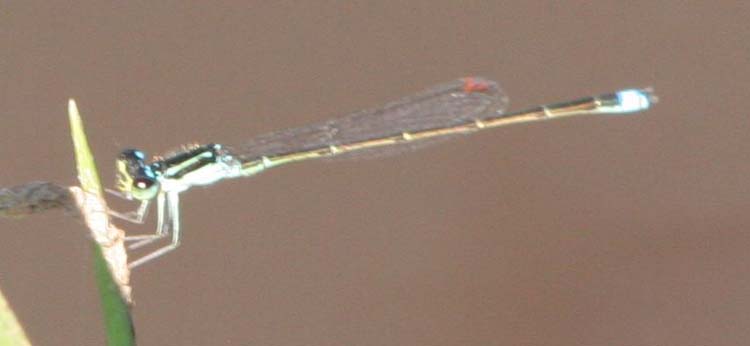 |
A male Homeoura nepos, separable from the very similar forktail Ischnura capreolus by two, long, pale-tipped upper terminal appendages, per Tim Manolis (marginally shown here). Porto Jofre, Mato Grosso |
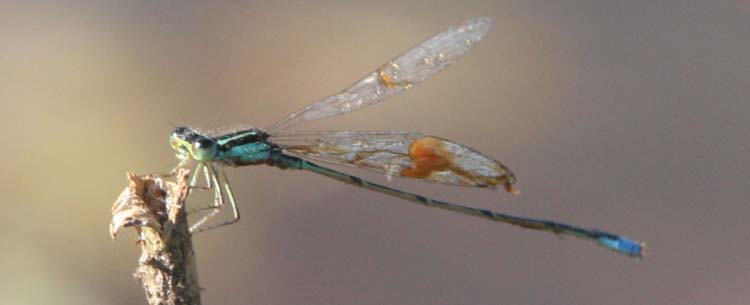 |
Another male Homeoura nepos; although appendages not clearly shown, the blue on S8 is limited to the sides of that segment only, per Dennis Paulson. It has some debris caught on wings. Porto Jofre, Mato Grosso |
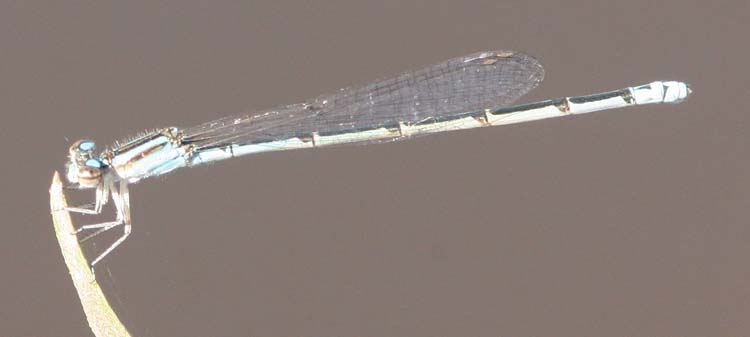 |
Probably a female of one of the many species in genus Acanthagrion, which "is the neotropical equivalent of Enallagma" (North American bluets — lots of species, many very tough to ID, even in hand), per Tim Manolis. Porto Jofre, Mato Grosso |
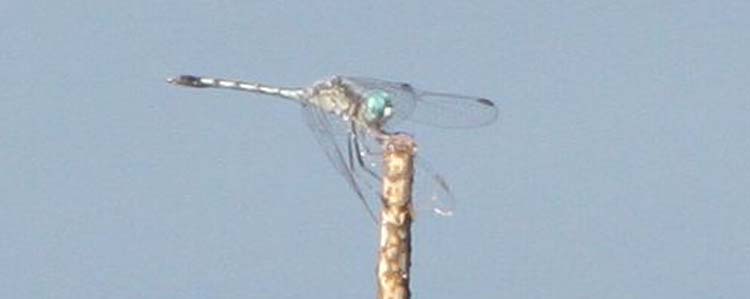 |
A male Micrathyria spuria, a common dragonfly in the Pantanal. In Central America and the Caribbean, Micrathyria species are called "dashers," and as a set they are known as "topical dashers." Porto Jofre, Mato Grosso |
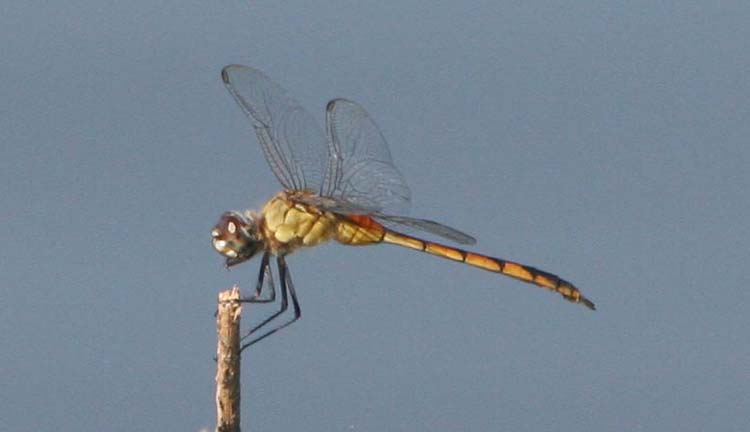 |
Female Tawny Pennant Brachymesia herbida — common and widespread species in the neotropics, occurring north to south Texas as south Florida (per Tim Manolis). Porto Jofre, Mato Grosso |
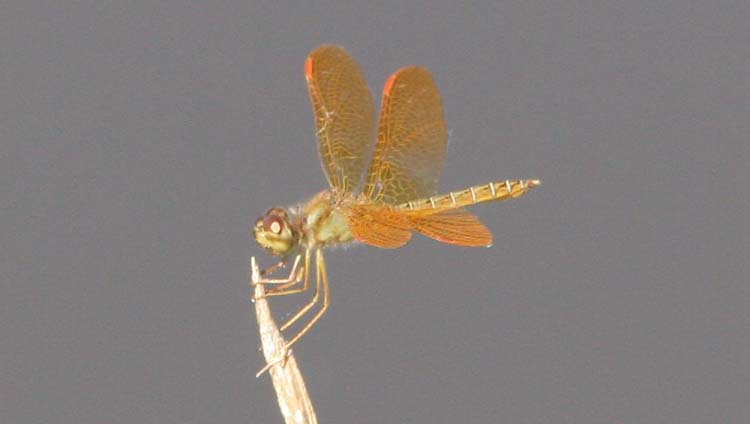 |
Am amberwing, most likely Golden Amberwing Perithemis electra, common in the Pantanal (T. Manolis) and ranging north to Costa Rica (D. Paulson) Porto Jofre, Mato Grosso |
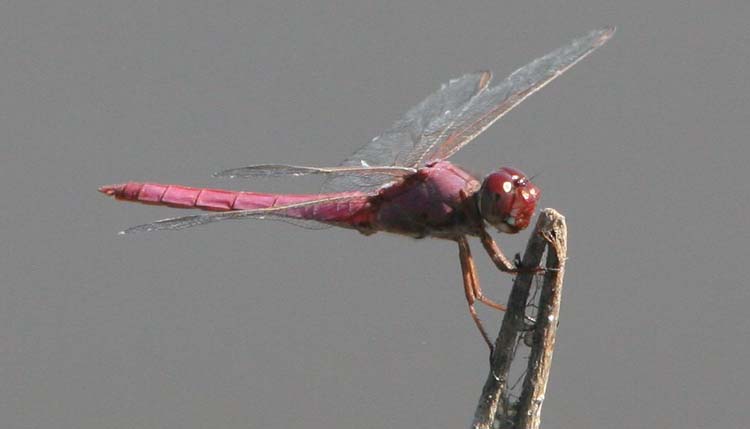 |
A male in the 'Roseate Skimmer' group. D. Paulson suggests it is "probably Orthemis aequilibris. O. discolor is very similar, but aequilibris usually has orange wing veins, which I can see in this photo. [O. discolor has black wing veins.] Also, aequilibris often has a white stripe along the ventrolateral margins of the thorax, which is shown in the photo." Porto Jofre, Mato Grosso |
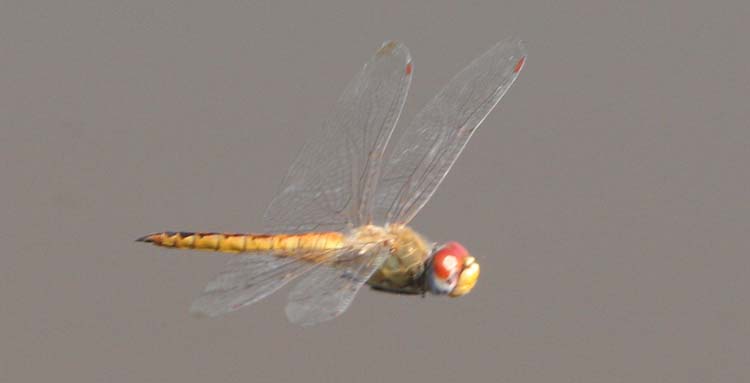 |
The familiar Wandering Glider Pantala flavescens, common throughout North America as well. Porto Jofre, Mato Grosso |
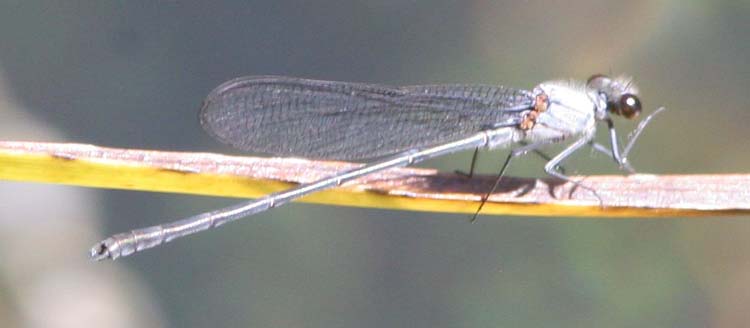 |
A male damsel, very likely Mnesarete machadoi, which was not described to science until 2004. Rosser Garrison, who published the paper on Mnesarete that described this species from Emas NP, agreed that this photo appeared to be that species Formosa River, Emas NP |
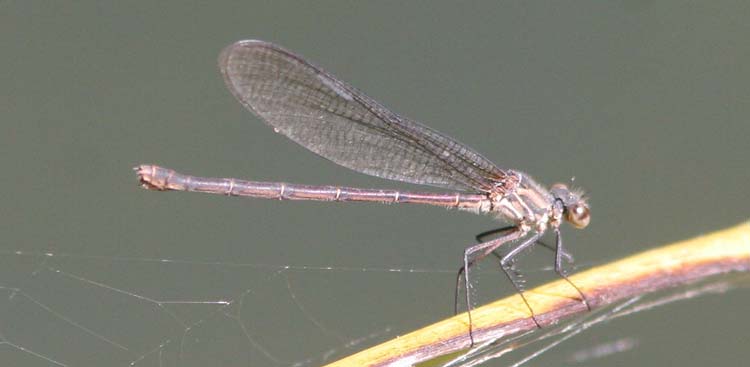 |
A female damsel in the genus Mnesarete, and likely the same species as male just above. However, female Mnesarete are rarely identifiable from photos (per R. Garrison) Formosa River, Emas NP |
Many thanks to Tim Manolis, Dennis Paulson, and Rosser Garrison from reviewing these photos and providing comments.
page created 21-27 Mar 2011
|
© Don Roberson 2010 |